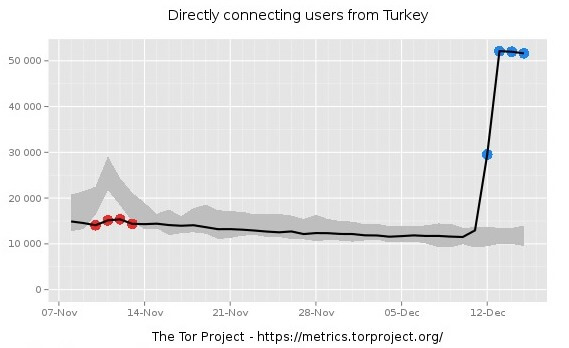The Turkish government, notorious for its strict internet policy, has just blocked the popular anonymity network known as Tor. This comes two months after they hastily blocked numerous cloud storage sites in an attempt to halt the spread of leaked emails. Internet Freedom watchdog Turkey Blocks described the move as compliance by internet providers with a government order to block the most popular VPN services.
The Onion Router, Tor for short, is a free and widely used anonymity service. It works by connecting users through numerous separate locations around the world. These repeated hops are analogous to the multiple layers of an onion and make the user's origin harder to track. Tor is often used by journalists, activists, and others wanting to circumvent internet censorship. It is popular in China and the Middle East where social media and file sharing sites are typically blocked.

According to the Turkey Blocks report, the Turkish Government has been increasingly using internet censorship as a punishment and a means to control its citizens. There are numerous cases of social media sites becoming unavailable during protests or political unrest. Tor has always been a popular way to avoid these restrictions but those in control are clearly taking notice.
Internet censorship is an eternal cat and mouse game. As soon as one website or VPN service is blocked, another will undoubtedly take its place. Tor stats are showing usage for the network has more than tripled in the weeks since censorship increased. While most default settings in Tor will not work anymore, tech savvy users will still be able to connect using more advanced methods.
